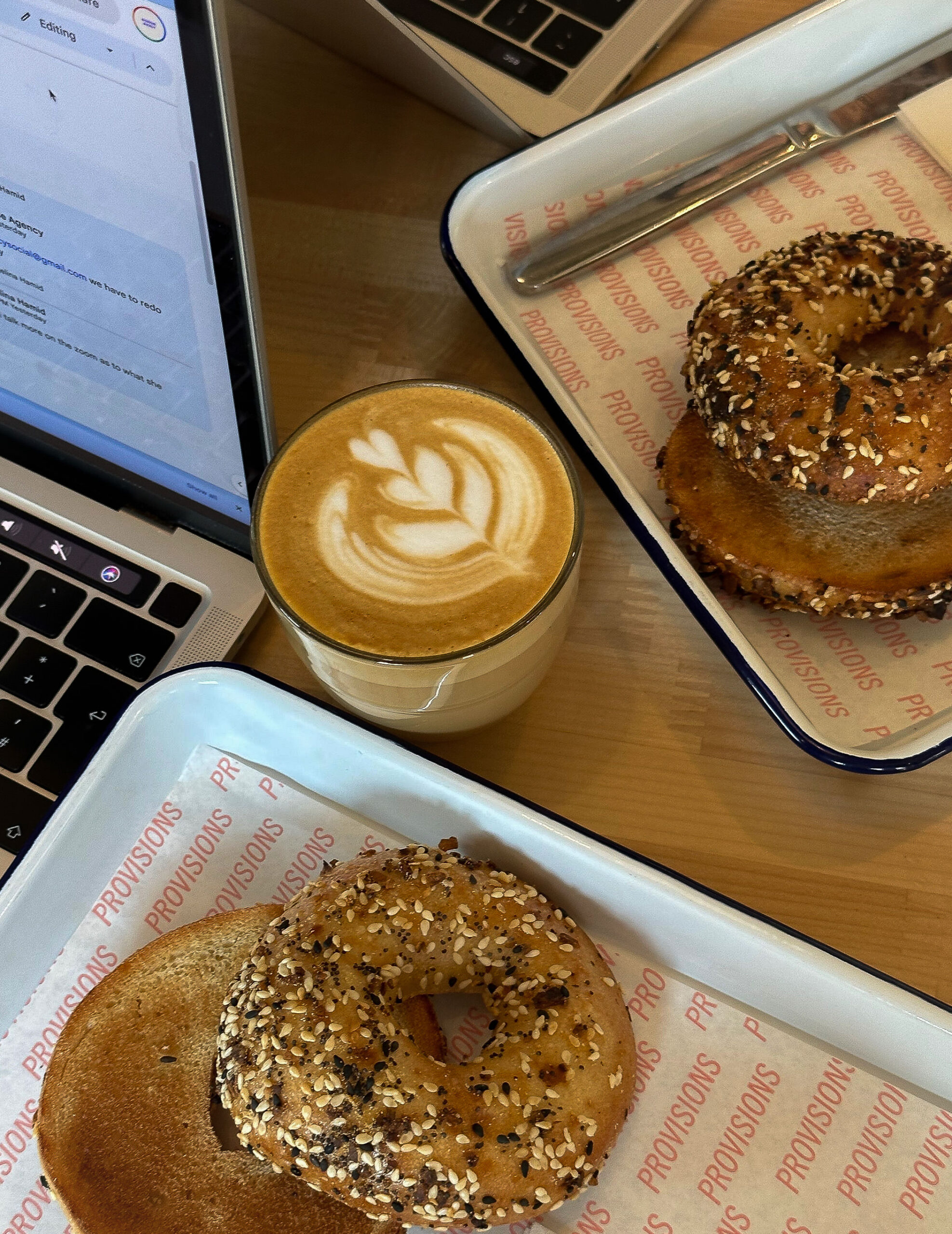The Difference between Binge Eating Disorder and Night Eating Syndrome

Written By:
Category:
Ryann Nicole
In the realm of eating disorders, two conditions that often cause confusion are Binge Eating Disorder (BED) and Night Eating Syndrome (NES). While they share some similarities, it’s crucial to recognize the distinctions between these disorders to facilitate proper understanding and effective treatment. In this blog post, we will explore the characteristics, causes, and potential treatments for both Binge Eating Disorder and Night Eating Syndrome.
Binge Eating Disorder (BED)
Binge Eating Disorder is a recognized psychiatric condition characterized by recurring episodes of consuming large amounts of food, typically in a short period, accompanied by a sense of loss of control during the episode. Unlike bulimia nervosa, individuals with BED do not engage in compensatory behaviors such as excessive exercise or purging. BED is the most common eating disorder in the United States and can affect people of all ages, genders, and backgrounds.
Key Features of Binge Eating Disorder
- Loss of Control: Individuals with BED often feel unable to stop or control their eating during episodes, leading to distress and guilt afterward.
- Frequency: Binge eating episodes occur at least once a week for three months or more.
- Emotional Factors: Binge eating is often triggered by emotional distress, but it can also occur in response to other factors, such as boredom or social situations.
Night Eating Syndrome (NES)
Night Eating Syndrome, on the other hand, is a distinct eating disorder characterized by a delay in the circadian rhythm of food intake. Individuals with NES consume a significant portion of their daily caloric intake during the night, often waking up to eat after having gone to sleep. Unlike BED, NES is not solely characterized by overeating; it is more about the timing of food intake.
Key Features of Night Eating Syndrome
- Nocturnal Eating: NES involves eating during the night, often waking up specifically to consume food, and feeling compelled to eat before going back to sleep.
- Mood and Sleep Disturbances: Individuals with NES often report mood disturbances and difficulty sleeping, further complicating the disorder.
- Daytime Anorexia: NES is associated with reduced appetite in the morning and afternoon, leading to a higher proportion of caloric intake during the night.
- Frequency: Night eating occurs at least twice a week for a duration of several months.
Distinguishing Factors
While both BED and NES involve episodes of uncomfortable eating behaviors, the key distinguishing factor lies in the timing and circumstances surrounding these episodes. BED is characterized by a loss of control during eating episodes, often triggered by emotional factors, while NES revolves around a disrupted circadian rhythm with a significant portion of caloric intake happening during the night.
Treatment Approaches
- Cognitive Behavioral Therapy (CBT): CBT has shown effectiveness in treating both BED and NES by addressing distorted thought patterns related to food and developing healthier coping mechanisms.
- Medication: Some medications, such as selective serotonin reuptake inhibitors (SSRIs), may be prescribed to help regulate mood and reduce the frequency of binge eating or nocturnal eating episodes.
- Nutrition Counseling: Working with a registered dietitian can help individuals establish regular eating patterns and address nutritional imbalances associated with both disorders.
In summary, while Binge Eating Disorder and Night Eating Syndrome share some similarities, understanding the nuances in their features, triggers, and consequences is crucial for accurate diagnosis and effective treatment. Seeking professional help from mental health and nutrition experts is vital for individuals struggling with these disorders, as tailored interventions can make a significant difference in improving overall well-being.
Must Read Books To Improve Your Relationship With Food
Just so you know, I do review everything I recommend. When you buy through links on this page, we may earn a commission.
Intuitive Eating by Elise Resch and Evelyn Tribole
When it was first published, Intuitive Eating was revolutionary in its anti-dieting approach. The authors, both prominent health professionals in the field of nutrition and eating disorders, urge readers to embrace the goal of developing body positivity and reconnecting with one’s internal wisdom about eating―to unlearn everything they were taught about calorie-counting and other aspects of diet culture and to learn about the harm of weight stigma.
Health At Every Size by Lindo Bacon
Fat isn’t the problem. Dieting is the problem. A society that rejects anyone whose body shape or size doesn’t match an impossible ideal is the problem. A medical establishment that equates “thin” with “healthy” is the problem. The solution? Health at Every Size. Tune in to your body’s expert guidance. Find the joy in movement. Eat what you want, when you want, choosing pleasurable foods that help you to feel good. You too can feel great in your body right now—and Health at Every Size will show you how.
Anti-Diet by Christy Harrison
In Anti-Diet, Christy Harrison takes on diet culture and the multi-billion-dollar industries that profit from it, exposing all the ways it robs people of their time, money, health, and happiness. It will turn what you think you know about health and wellness upside down, as Harrison explores the history of diet culture, how it’s infiltrated the health and wellness world, how to recognize it in all its sneaky forms, and how letting go of efforts to lose weight or eat “perfectly” actually helps to improve people’s health—no matter their size. Drawing on scientific research, personal experience, and stories from patients and colleagues, Anti-Diet provides a radical alternative to diet culture, and helps readers reclaim their bodies, minds, and lives so they can focus on the things that truly matter.
Just Eat It by Laura Thomas
With a perfect blend of scientific expertise and relatable anecdotes, the author dismantles societal myths around food and body image. Through practical advice, self-reflection exercises, and a touch of humor, Thomas equips readers with the tools to break free from the cycle of diet culture, promoting self-love and nourishment. This book is an essential companion for anyone seeking to redefine their approach to food, fostering a positive and sustainable lifestyle.
Ryann Nicole
Licensed Therapist, Certified Nutritionist, and Virtual Wellness Coach
Ryann is a licensed therapist and virtual wellness coach who has assisted individuals worldwide in establishing a healthier relationship with food and their bodies.
Are You Ready to Heal Your Relationship With Food?
I understand—it can be overwhelming to figure out where to begin. Let's simplify things and have you start right here:
Why Am I Overeating?
First Steps To Stop Binge Eating
The Food Freedom Lab Podcast
FREE QUIZ
FREE GUIDE
Podcast
the food freedom lab podcast




